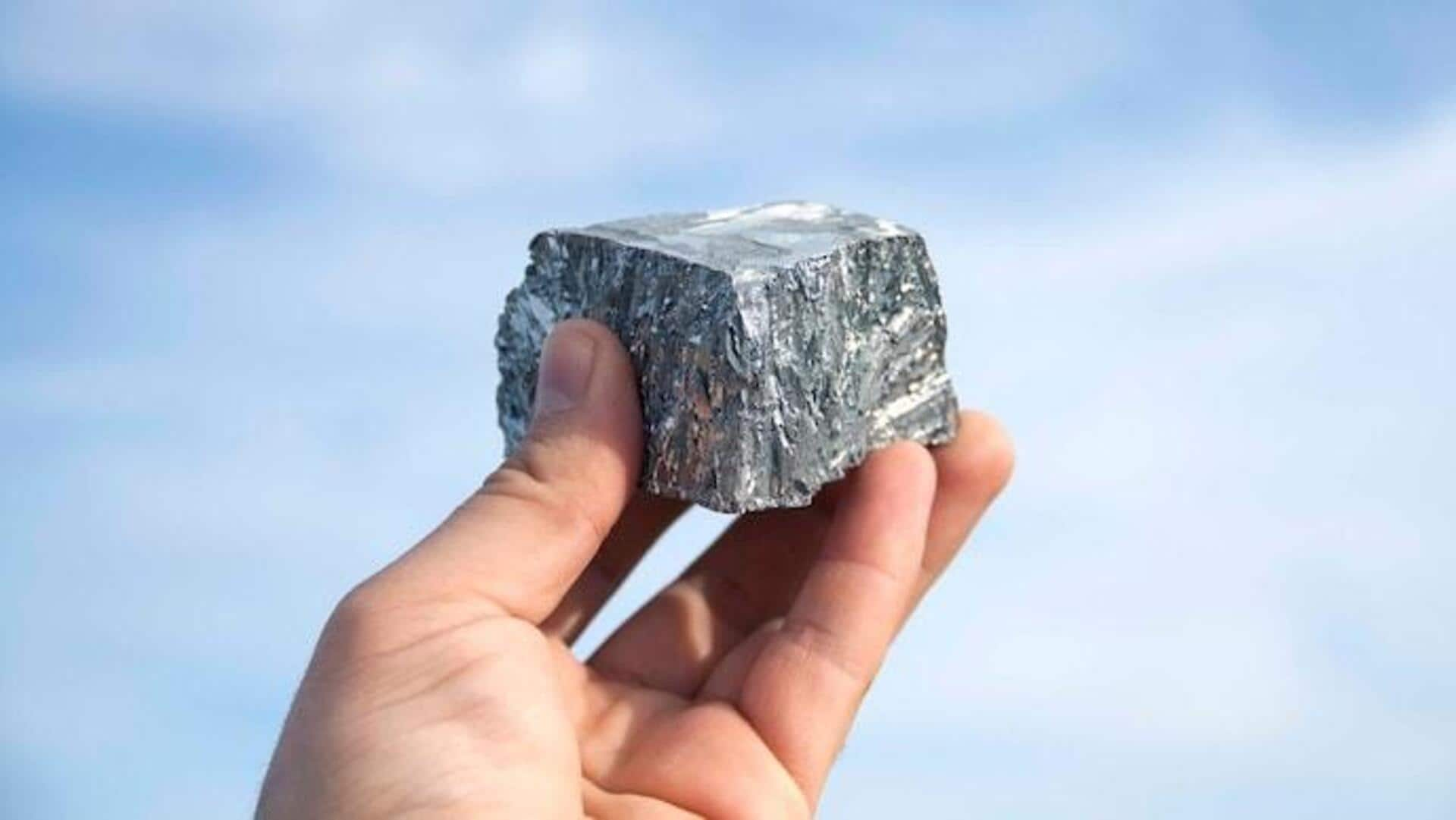
Why India wants to boost this rare-earth metal's production
What's the story
India is planning to increase its neodymium production by nine times, reaching 500 tons by the end of FY27. The move is part of a broader strategy to strengthen self-reliance in rare earth elements. The expansion will be led by Indian Rare Earths Limited (IREL), a state-run enterprise under the Department of Atomic Energy (DAE).
Strategic importance
Neodymium's significance and production targets
Neodymium is a critical element in the global rare-earth magnet industry. It plays a key role in electric vehicles, clean energy technologies, and defense systems. Last year, India produced just 40 tons of neodymium amid a rare-earth crisis. Now, IREL plans to end this fiscal year with an output of 200 tons and reach 500 tons by FY27.
Production increase
IREL's commitment to ramp up production
V Chandrasekar, GM and head of IREL's rare-earth division, said they are working tirelessly to ramp up neodymium and praseodymium production. He said these elements are in high demand across industries. "We will double our output within a year," he added. IREL has a rare-earth extraction plant in Odisha and a refining facility in Kerala where eight out of 17 rare earth elements are already produced.
Market share
Global rare-earth landscape and India's position
China dominates the global rare-earth business with a 44% market share and nearly 90% of total production. In contrast, India holds only 5-6% but ranks third in output and sixth in reserves. IREL has also set up a rare-earth permanent magnet (REPM) plant for the indigenous production of samarium-cobalt magnets used in defense and atomic energy applications.
Government initiative
Alignment with National Critical Mineral Mission
The production ramp-up aligns with the central government's National Critical Mineral Mission (NCMM), launched earlier this year. The mission proposes an expenditure of ₹16,300 crore and an expected investment of ₹18,000 crore by PSUs and private stakeholders from FY25 to FY31. The NCMM aims to secure a sustainable supply chain for critical minerals, from exploration and mining to processing and recycling.